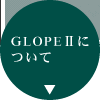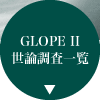予定表 -詳細情報-
| 件名 | LS 豊田 紳氏 |
| 開始日時 | 2012年 1月 17日 (火曜日) 12時15分 (GMT+09:00) |
| 終了日時 | 2012年 1月 17日 (火曜日) 12時50分 (GMT+09:00) |
| 場所 | 1号館401教室 |
| 詳細 | GLOPE II ランチタイムセミナー 【報告者】Shin Toyoda(Waseda University) 【タイトル】Taking Voters’ Seriously: Electoral Cycle of Inter-State Disputes Initiation and Settlement (joint work with Masaaki Higashijima and Kiyotaka Yasui) 【概要】 Scholars on the international relations now accept a “domestic audience cost model” as a standard explanation for peace among democracies. According to the mode, electoral accountability in democracies enables leaders in democracies to send credible signal against adversary state so that negotiated settlement of inter-state conflicts is easy. However, by focusing the peace among democracies in comparison to the belligerency among dictatorship, the domestic audience cost model has failed to explain the inter-state conflict behavior of democracies. This theoretical omission is regrettable, since a lot of empirical works have found the very electoral accountability indeed may invite inter-state conflicts in democracies. Our aim is to fill this theoretical and empirical gap by extending domestic audience cost model in two aspects; (1) electoral behavior of voters and (2) the effect of political institutions. Firstly, in contrast to the conventional audience cost model which assumes that voters adopt perfect retrospective voting, we follow the empirical findings that voters are retrospectively myopic, short-memory. Secondly, we distinguish the presidential democracies from parliamentary democracies because these two democracies are different in the ability to generate the domestic audience cost; fixed elections date of presidential elections facilitate the generation of audience costs. Our extended domestic audience cost model can predict that the timing of interstate disputes which the original model cannot. Presidential democracies are more likely to initiate an inter-state conflict short of actual use of force as the timing of presidential elections approaches. We test this hypothesis by employing a newly constructed country-month data set which is designed to capture the timing of inter-state conflict initiation, elections and outcome of conflicts in a month basis. The result of multinomial regression lends full support to our hypothesis. These results suggest that institutions and electoral behaviors are keys in understanding the behavior of inter-state conflicts of democracies. *The talk will be given in English. |
| カテゴリー | 政治経済学基礎セミナー・ランチタイムセミナー |








